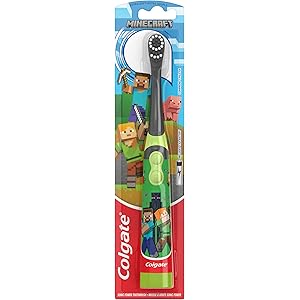No-Touch Thermometer for Adults and Kids, Accurate Digital Baby Thermometer, Fever Alarm & Silent Mode, 2 in 1 Forehead & Object Mode
$15.99 (as of October 13, 2025 17:48 GMT +00:00 - More infoProduct prices and availability are accurate as of the date/time indicated and are subject to change. Any price and availability information displayed on [relevant Amazon Site(s), as applicable] at the time of purchase will apply to the purchase of this product.)Understanding Baby’s First Year Milestones
The first year of a baby’s life is a remarkable journey filled with rapid growth and development. Parents often find themselves eagerly anticipating each new milestone, from the first smile to the first steps. These milestones are critical indicators of a child’s physical, emotional, and cognitive development, providing essential insights into their overall health and well-being. Understanding these milestones can help parents support their child’s growth effectively.
Physical Milestones in Baby’s First Year
During the first year, babies achieve significant physical milestones that showcase their growing strength and coordination. By around two months, most infants begin to lift their heads while lying on their stomachs. As they approach six months, many can sit up with support and may even start to crawl. By the end of the first year, most babies are standing with assistance and may take their first steps. Tracking these physical milestones is crucial for ensuring that your baby is developing appropriately.
Cognitive Development Milestones
Cognitive milestones during a baby’s first year are equally important. By three months, babies typically begin to follow moving objects with their eyes and show interest in their surroundings. Around six months, they start to recognize familiar faces and may respond to their names. By the end of the first year, many babies can understand simple words and commands, showcasing their growing cognitive abilities. Engaging with your baby through play and conversation can significantly enhance their cognitive development.
Social and Emotional Milestones
Social and emotional development is a vital aspect of a baby’s first year. By two months, babies often begin to smile socially, indicating their ability to connect with others. At around six months, they may show preferences for certain people and become more expressive with their emotions. By their first birthday, many babies exhibit separation anxiety and may show fear of strangers. Understanding these emotional milestones helps parents nurture their child’s social skills and emotional intelligence.
Communication Milestones
Communication milestones are crucial during a baby’s first year, as they lay the foundation for language development. By around three months, babies start cooing and making gurgling sounds, which are their first attempts at communication. By six months, they typically begin to babble, experimenting with different sounds. By the end of the first year, many babies can say simple words like “mama” or “dada,” marking significant progress in their communication skills. Encouraging verbal interaction can foster this development.
Feeding Milestones
Feeding milestones are also an essential part of a baby’s first year. In the early months, babies rely solely on breast milk or formula for nutrition. By around six months, most babies are ready to start solid foods, which introduces new textures and flavors to their diet. By their first birthday, many babies can eat a variety of foods and may even start using a spoon. Monitoring feeding milestones ensures that your baby is receiving adequate nutrition for their growth and development.
Sleep Milestones
Sleep patterns evolve significantly during a baby’s first year, impacting their overall health and development. Newborns typically sleep for 16 to 18 hours a day, but as they grow, their sleep patterns begin to stabilize. By six months, many babies can sleep for longer stretches at night, often sleeping through the night. By their first birthday, most babies take fewer naps and have more predictable sleep schedules. Understanding sleep milestones can help parents establish healthy sleep habits for their children.
Motor Skills Development
Motor skills development is a vital component of baby’s first year milestones. Fine motor skills, such as grasping objects, begin to develop around three months when babies can hold toys. By six months, they often reach for and grasp items with greater control. By their first birthday, many babies can pick up small objects using their thumb and forefinger, a skill known as the pincer grasp. Encouraging play with various toys can enhance motor skills development during this critical period.
Health Checkups and Milestones
Regular health checkups are essential for monitoring baby’s first year milestones. Pediatricians typically assess a baby’s growth, development, and overall health during these visits. Vaccinations are also administered to protect against various diseases. Parents should keep track of their baby’s milestones and discuss any concerns with their healthcare provider. Early intervention can be crucial if any developmental delays are identified, ensuring that the child receives the support they need.
Celebrating Milestones
Celebrating baby’s first year milestones is a joyful experience for parents and families. Each milestone achieved is a reason to celebrate, whether it’s a small gathering or a special family moment. Documenting these milestones through photos and videos can create lasting memories and help parents reflect on their child’s growth. Sharing these experiences with friends and family can also foster a supportive community around the child’s development.



